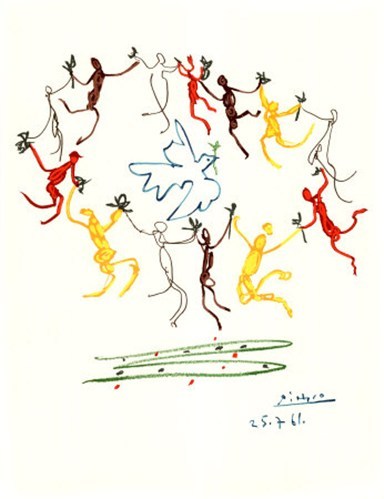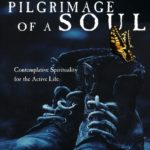Becoming Whole

Several years ago I embarked on the Christian contemplative path and have never been the same. Through the practice of centering prayer, I have learned how to live the Gospel of surrender and liberation, letting God do for me what I can’t do for myself. I’ve experienced profound healing and transformation—beyond what I was even aware that I needed. This has been a Christian experience of tasting eternal life here and now; walking with Jesus in ways I didn’t know possible.
In contemporary society, there’s a lot of talk about wholeness. But this isn’t a new message. The pilgrimage of life and the message of Jesus is all about becoming whole. If we respond to the invitation for wholeness, throughout our lifetime though our bodies will slowly die, we’ll become more and more alive. Becoming whole is Jesus’ invitation to an abundant life. But how exactly do we become whole?
In my adult life there have been a few essential components in the journey to becoming more whole: self-knowledge, spiritual direction, counseling and yoga.
Self Knowledge
To know God is to know thyself.
Self-knowledge is a critical aspect to growing in relationship with God and making the journey of transformation and wholeness. Too often there’s an overemphasis on discovering and knowing God through religious ritual and practice while neglecting authentic self-discovery. Christian theology affirms that God dwells within us. If that is true then it is imperative that we get to know the human vessel in which God resides.
Think about someone whom you’ve heard a lot about and perhaps even rubbed shoulders with on occasion and maybe even gotten acquainted with in certain spheres of life. You desire to get to know this person more and are invited to their home, where they dwell. Upon entering their abode you take in all kinds of data you didn’t have at your disposal before. One’s home can tell you a lot about a person. With each new discovery of the home, you learn more about your friend.
The same is true in relationship with God. God dwells within our crude and glorious humanness. As we awaken to deeper levels of who we are, we come to know our Creator more intimately.
Sadly, as the Buddha put it, most people live the entirety of their lives asleep. Waking up can prove to be frightening. It can be easier to live an illusion than to dive to the depths of our authentic self. But you’ve gotta ask yourself, even if you’re afraid to journey into the depths of your identity and essence, are you really satisfied exchanging the truth of God for an illusion; or a whole, vibrant life for a fragmented one? Dare to wake up and by so doing you will really start to live—with all of life’s pain and joy. Don’t fear the pain. Your anguish will carve out space within you for more joy than you would have ever dreamed you could contain.
As the Lebanese poet, Kahlil Gibran so aptly put it,
Your joy is your sorrow unmasked.
And the selfsame well from which your laughter rises was oftentimes filled with your tears.
And how else can it be?
The deeper that sorrow carves into your being, the more joy you can contain.
Waking up to the beauty and agony of our lives is for the courageous. It takes courage to embark on the unknown. Awakening is likened to Jesus’ invitation to repent. Repentance is about living differently, being changed. But change is so hard for us humans. We resist it like the plague. Change feels scary and insecure. In the Gospels we witness people who audaciously went to Jesus to be changed. And the Master often responded by saying, “Your faith has healed you, go in peace.” That’s it. Just like that. The seeker’s willingness to change and faith that change was possible was all that was needed.
Courage and faith are absolute key ingredients to becoming whole. Once you take that first step to open your eyes and reach simultaneously outward and inward to God and your authentic self, you will never be the same.
Making the journey of transformation and wholeness is not easy, but incredibly satisfying. Because the way can be difficult and frightening, it can be helpful to find guides who have made the way before us. The age-old practice of spiritual direction is one of God’s greatest gifts to us.
Spiritual Direction
The Christian monastic tradition dates back to the 3rd and 4th century desert mothers and fathers—those radical, counter-cultural Christ followers who left civilization for the hills and caves of the wasteland to take seriously the human experience of transformation and wholeness. As the monastic tradition developed, so did the disciplined way of spiritual direction—learning with and from a companion who is a bit further along in the spiritual journey.
Wise spiritual directors are confidants and confessors. In addition they giftedly create space for one to hear and listen to the voice of God. Their role is one of accompaniment as they assist the directee in sorting out the wonder and mess of their divine humanity.
I’ve met with a trained spiritual director for years. Sr. Anne Pellegrino is a member of the Sisters of Mercy. Pellegrino means “pilgrim” in Italian. I think her name is so fitting for her role in my life. She is a fellow pilgrim in the human journey. We meet for about an hour every one to three months and in her presence I find safety to explore some of the deepest parts of my identity and calling. She helps me find God in the midst of painful trials and gripping temptations. Her companionship gives me courage to discern light from darkness and to respond to the light.
Sr. Anne is the one who helped me years ago to hear Jesus’ voice in the Gospel story of the woman who was bent over for eighteen years. Jesus’ invitation to that woman and to me was not the typical dominant message to the powerful of “humble yourself”—she and I were already humbled enough, experiencing a reality of powerlessness. Jesus’ invitation of healing the woman of long ago and me was to stand up straight. Right there in the Gospel Sr. Anne helped me hear the voice of God in my life and open the way for me to live more fully into my authentic self—a self that sometimes opposes the status quo.
Getting to know one’s self can be a delightful yet treacherous journey. The way of wisdom, transformation and wholeness is unknown. There’s no road map. The way is made by walking in faith. And spiritual directors are some of the best companions in the journey.
Being divinely human is a complex reality. We are not fragmented creatures divided into parts that have no association or appreciation for one another. Our humanness consists of physical, spiritual and psychological dimensions that are inter-connected.
Spiritual directors are skilled at helping us navigate the spiritual dimension. But at times the way may get so arduous and challenging to our psyche that other guides are needed; guides skilled at navigating the murky waters of our mental and emotional health.
Counseling
I am so grateful for my psychotherapist Dr. Cathy. Her assistance over the years has helped me make significant passages in the pilgrimage of life. To hear Jesus calling me to “stand up straight” is one thing. To actually do it, is something else. Shedding paradigms that were keeping me “in my place” and preventing personal growth and development was really difficult. The emotional junk of a lifetime (as the Cistercian monk Thomas Keating puts it) had its hold on me and would not loosen its grip easily. Trained, professional counselors, therapists and psychiatrists can be so helpful when we experience blocks in moving forward in life, or seasons of intense darkness, or seemingly unresolvable relational tensions that we struggle to understand.
Trusted professional counselors offer incredible support when we are ready to wake up, determined to change and when we know there’s more to life than what we’re experiencing. They help us sift through the anguish of life experience and step out of old mindsets and patterns so that we can venture into the abundant life that Jesus exemplified and called us to.
We are complex creatures, that’s for sure. And we’re not made to make the journey of life alone. There’s no shame in reaching out for help when we’re stuck or desperate. Actually, reaching out for assistance is an incredible grace and a sign of strength and wisdom.
Yoga
As the years have progressed I’ve realized just how much the spiritual, psychological and physical dimensions of my life interplay. I’m convinced that our body has a consciousness of its own—storing memories, experiences, wisdom and obstacles to growth and transformation.
It seems that Eastern cultures are steps ahead of the West in understanding the holistic nature of healing and wholeness. Sadly we tend to fear what we don’t know and that can keep us from embracing a lot of these good gifts from our neighbors. Kind of ironic how much Christians reject Eastern thought and practice given that Jesus was Middle Eastern.
Yoga is one of the Eastern practices that has supported my personal growth. Yoga emphasizes bringing harmony to the mind, spirit and body. Through asanas or postures, the body has a chance to be heard by the mind and spirit and calls all three parts into unity. The body and the breath lead, giving the mind a much-needed rest; and the spirit is refreshed to find more space within my body to live and move and more freely express itself.
St. Irenaus said, “The glory of God is a human being fully alive.” To be fully alive, all three dimensions of our divine humanity must be embraced and engaged.
In your own life, are any parts being neglected? Or do you experience the harmony of your spirit, psyche and body co-existing in unity? What is God calling you to and what might be preventing you from living into abundant life? What are you afraid of or what are you avoiding? Are you ready to wake up?
Choose the courageous and wise journey of becoming whole. The world will be a much better place if we all do.



